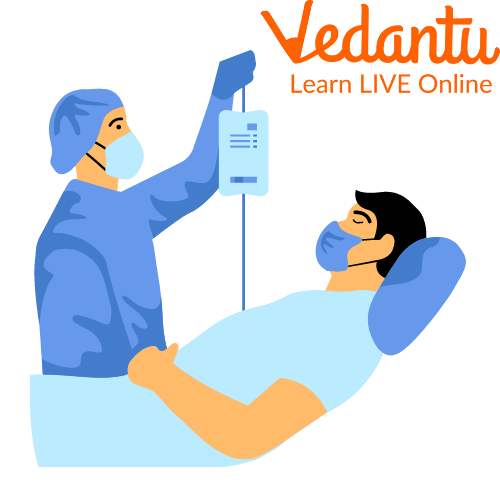




Essential Facts Every Student Should Know About Doctors
People who practise medicine are doctors. Doctors are educated to promote wellness and treat illness. The work of a doctor involves numerous aspects. Doctors must first determine what is causing a patient's illness. Then they choose a course of action. They can also forecast the patient's recovery time. Doctors also work to avoid illnesses. Doctors collaborate with a wide range of individuals when treating patients, including nurses, therapists, and physician assistants.

A Doctor
It takes years of education and training to become a doctor. Before starting medical school, students enrol in general education courses as well as courses in Biology, Chemistry, and Physics. After that, students attend medical school for four to five years. In medical school, graduates often receive a doctor degree after the completion of the course. If we have to thank a doctor, 10 lines about the doctor would be very less. In this article we will discuss the role of a doctor and how one can be a doctor.
Role of a Doctor
As far we have seen a few lines about doctors. Now we are going to see the role of a doctor. A doctor is a skilled person who knows diseases and treatments. A doctor is responsible for a lot of work in a hospital.
The following are the roles of a doctor.
Saving Life: Typically, this occurs during an emergency procedure or an elective procedure for a time-sensitive or catastrophic sickness. Accidental injury and difficult labour are other factors.
Extending Life: Unfortunately, not all illnesses can be totally treated. However, with the help of doctors, medicines, and therapies, the patient's lifetime or the start of the worst effects of sickness can be substantially extended. Despite the fact that this time varies widely from case to case and patient to patient, the efforts behind the cause are admirable.
Improving Lives: Not every disease compromises the patient's life. However, suffering the discomforts for the rest of one's life is not an option. Doctors' efforts enable them to reduce these discomforts and live their lives to the fullest. Doctors play an important role in the Healthcare sector, they guide nurses and other hospital staff in hospitals.

A Doctor Treating a Patient
Types of Doctors
There are many types of doctors, depending on the field they have studied, like physicians, surgeons, dermatologists, cardiologists, etc.
Surgeons: A person who specialises in surgery and has surgical knowledge is called a surgeon.
Physician: Doctors that perform non-surgical treatment are called physicians.
Gynaecologist: A doctor skilled in female reproductive health is called a gynaecologist.
Dermatologist: A doctor that treats skin diseases is called a dermatologist.
Dentist: A doctor who is skilled in the treatment of teeth is called the dentist.
Cardiologist: A person who knows the treatment of the blood vessels and heart is called a cardiologist.
Interesting Facts about Doctors
To become a doctor in India, an aspirant should have passed the 12th class with a science background.
In India, a student who wants to become a doctor should have studied Biology in Class 12th.
Qualifying medical entrance exams is necessary to become a doctor.
To become a doctor, one should need an MBBS or equivalent qualification.
To become a doctor, one should have to do a five-year graduation course.
In a five-year graduation course, 1-year fieldwork or internship is mandatory.
Summary
The person who wants to become one has to do a five-year graduation course after passing his or her schooling. Doctors also complete their masters in one particular specialisation. To get admission to college in India, one has to cross the NEET (National Eligibility cum Entrance Test) exam. Doctors play an important role in curing patient illnesses. Doctors give required treatment and advice to the patient so that the patient becomes healthy.
FAQs on Who Is a Doctor? Definition, Roles & Types Explained
1. Who is a doctor and what do they do?
A doctor is a trained professional who helps people stay healthy and treats them when they are sick or injured. Their main job is to diagnose illnesses, which means figuring out what is making someone unwell, and then prescribing the right treatment or medicine to help them recover. Doctors work in various places, including hospitals, clinics, and health centres.
2. What are some common tools a doctor uses?
Doctors use special tools to check our health and understand what is happening inside our bodies. Some common examples include:
Stethoscope: To listen to the sounds of the heart and lungs.
Thermometer: To measure body temperature and check for fever.
Otoscope: To look inside the ears, nose, and throat.
Blood Pressure Monitor: To check if a person's blood pressure is in a healthy range.
3. How does a doctor figure out what is wrong with a patient?
A doctor uses a systematic approach to understand a patient's health problem. First, they listen carefully as the patient describes their symptoms. Next, they conduct a physical examination, using their tools to check vital signs. If needed, they may recommend further tests like blood tests or X-rays to get a complete picture before making an accurate diagnosis and planning the treatment.
4. What are the most important qualities of a good doctor?
Besides medical knowledge, a good doctor possesses several important personal qualities. Key among them are:
Compassion: They must be caring and empathetic towards their patients' suffering.
Patience: They need to listen to patients calmly and give them enough time to explain their issues.
Strong Communication: They must be able to explain complex medical conditions and treatments in a way that patients can easily understand.
5. Why is it important to be completely honest with your doctor?
Being honest with your doctor is crucial for your own safety and health. If you hide symptoms or don't share complete information, the doctor might make an incorrect diagnosis or prescribe a treatment that is not suitable or could even be harmful. Full transparency helps the doctor provide the safest and most effective care to help you get better quickly.
6. Are there different kinds of doctors?
Yes, the field of medicine is vast, and doctors often specialise in treating certain parts of the body or specific types of patients. For example:
A Pediatrician is a doctor who specialises in treating babies and children.
A Dentist is a doctor who takes care of our teeth and gums.
A Dermatologist is a specialist who treats problems related to the skin, hair, and nails.
An Ophthalmologist is an eye doctor.
7. What subjects does a student need to study to become a doctor?
To pursue a career as a doctor, a student must focus on science subjects during their senior secondary education. The combination of Physics, Chemistry, and Biology (PCB) is mandatory. After completing school, they need to pass a competitive entrance exam to get admission into a medical college, where they study for many years to earn their medical degree.
8. What does the abbreviation 'Dr.' before a name signify?
'Dr.' is the abbreviation for the word Doctor. It is used as a title before the name of a person who has earned a professional degree in medicine (like an M.B.B.S.) or the highest academic degree (like a Ph.D.) from a university. When you see 'Dr.' before a name at a clinic, it signifies that the person is a qualified medical practitioner.









